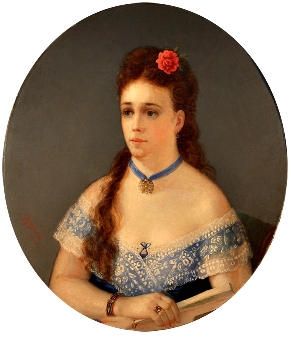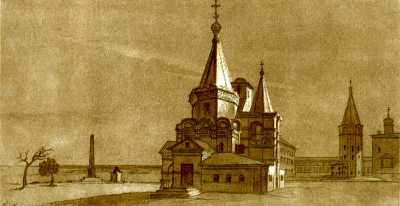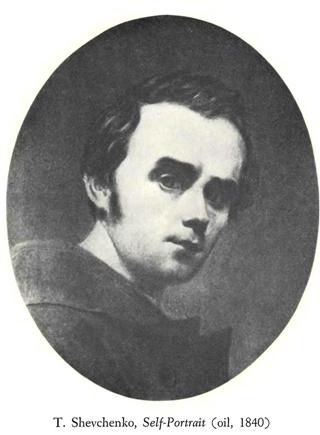|
TARAS SHEVCHENKO’S LIFE AND WORK (part of the biography written by C. H. Andrusyshen)
Taras Shevchenko, "Archangel Cathedral in Nizhny Novgorod"
 Katya Piunova, sixteen-year-old actress That play afforded Shevchenko another romantic outlet, for in its chief female role appeared the fifteen-year-old Katia Piyunov, a talented, lively actress, full of promise. Shevchenko, now forty-three, bald, stooped, grey-bearded, and aged beyond his years, fell deeply in love with her. Naively imagining her already as his wife, he made arrangements to have her engaged in the Kharkiv theatrical troupe, and to that end sought to establish her reputation by writing favourable reviews of her performances. As her protector, he finally wrote her a letter of proposal of marriage and informed her parents of his intention. Secretly, this proposition was ridiculed as a piece of theatrical folly; overtly, it was accepted without any definite answer, for the young woman was still waiting for a successful outcome of her application to join the Kharkiv troupe. Once she received a positive answer from the management, she gave Shevchenko a definite “no.” To judge by the entry of this incident in his Diary, he did not know what struck him. The blow was softened somewhat by an official 'document which arrived on February 25, permitting him to return to St. Petersburg on the condition that he remain under strict police supervision and that the administration of the Academy of Art vouch for his future good behaviour. Shortly before his departure on March 8, he was further overjoyed at receiving from Gern his four “bootleg” booklets. The régime had good reason to suspect Shevchenko, for in spite of the pardon he received, he did not abandon his radical views with regard to the tsarist government, and expressed himself quite openly against it. That attitude is only too evident in the poetry he wrote during his Nizhni Novgorod period, particularly in one poem where he voiced a longing for a Washington to appear in Ukraine (as well as in the entire Russian Empire, for all that) “with his new and righteous law.” In his long masterpiece, “The Neophytes,” which he wrote under intense inspiration in a matter of a single week, and which seems to be a sudden artistic outburst of his feelings pent-up in the course of some seven years at Novopetrovsk, he poured out his caustic venom against Tsar Nicholas I and the tyranny he represented. Quite true, he made the action take place in Nero's Rome during the persecution of the first Christians, but the subterfuge was only too ill disguised, and no one could mistake whom Nero delineated. The poem is one of the pearls of Ukrainian literature and a chef-d'oeuvre of universal value in that it proclaims the eventual efficacy of the Christian principles of Truth, Justice, and Brotherhood among men, and preaches the ideal of forgiveness as enunciated in the Lord's Prayer.
Read more: Recent comments for the page
«Release from exile. Taras Shevchenko’s travel to Nizhny Novgorod (part of the biography written by C.H. Andrusyshen)»:
Refresh comments list
Total amount of comments: 0 + Leave a comment
|
|

